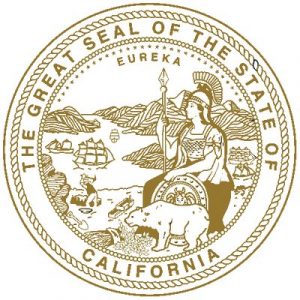 California’s Court of Appeal held a local sales tax ordinance (Measure K) was a general tax, not a special tax, and therefore its adoption did not require a two-thirds vote (supermajority) under California’s Constitution. A tax is “special” and therefore would require a two-thirds vote, when the expenditure of its revenues is dedicated to a specific project or projects. The plaintiffs argued that Measure K was a special tax because the funds were earmarked for the funding of the county’s public safety services and essential services. The Court of Appeal disagreed, concluding tax proceeds that are deposited in a separate account for unspecified “other essential services” could be used for any and all government services that qualify as an “essential service” and are therefore not dedicated to a specific project or purpose, indicative of a general tax. Thus, the court held Measure K was valid.
California’s Court of Appeal held a local sales tax ordinance (Measure K) was a general tax, not a special tax, and therefore its adoption did not require a two-thirds vote (supermajority) under California’s Constitution. A tax is “special” and therefore would require a two-thirds vote, when the expenditure of its revenues is dedicated to a specific project or projects. The plaintiffs argued that Measure K was a special tax because the funds were earmarked for the funding of the county’s public safety services and essential services. The Court of Appeal disagreed, concluding tax proceeds that are deposited in a separate account for unspecified “other essential services” could be used for any and all government services that qualify as an “essential service” and are therefore not dedicated to a specific project or purpose, indicative of a general tax. Thus, the court held Measure K was valid.
Articles Posted in California
California Lawyers Association’s 2021 Annual Income Tax Seminar

Pillsbury SALT attorneys Robert Merten and Lexi Louderback will present during CLA’s Annual Income Tax Seminar on July 15.
San Francisco’s New Tax Provisions May Have Unintended Consequences
In a recent Tax Notes State article, Pillsbury lawyers Craig Becker, Breann Robowski, Richard Nielsen and Robert Merten examine San Francisco’s new tax provisions and unintended consequences they may have. Read more here.

Hidden Within The Transparency and Fairness Act of 2017 Was The Little Noticed Exemption from OAL Review of the CDTFA’s Proposed Regulations
Much to the recent surprise of many in the tax community, the California Department of Tax and Fee Administration (“CDTFA”) is able to adopt or amend regulations without the normal review process by the Office of Administrative Law (“OAL”) under the Administrative Procedures Act (“APA”). Continue Reading ›
COST Central West Regional State Tax Webinar
Pillsbury SALT attorneys Carley Roberts, Annie Huang and Robert Merten III will present at the COST Central West Regional State Tax Webinar on March 24.

Should San Francisco Taxpayers File Protective Claims for Recovery of the Homelessness Tax and the Commercial Rents Tax?
In 2018, San Francisco voters approved, by simple majority vote, two new gross receipts taxes: the Homelessness Gross Receipts Tax (SF-HT) and the Commercial Rents Tax (SF-CRT), with both  taxes effective as of January 1, 2019.[1] Because these taxes fund specific governmental services, they are designated as special taxes (specifically, the SF-HT funds homelessness services and the SF-CRT funds early childhood education). Since the California Constitution specifies that special taxes imposed by local government need two-thirds voter approval (i.e., a “supermajority”), taxpayer groups have filed lawsuits to invalidate these special taxes, as both were approved by only a majority vote (61% for the SF-HT and 51% for the SF-CRT).[2] As discussed more fully below, the courts have ruled against these taxpayer groups and the California Supreme Court to date has refused review.
taxes effective as of January 1, 2019.[1] Because these taxes fund specific governmental services, they are designated as special taxes (specifically, the SF-HT funds homelessness services and the SF-CRT funds early childhood education). Since the California Constitution specifies that special taxes imposed by local government need two-thirds voter approval (i.e., a “supermajority”), taxpayer groups have filed lawsuits to invalidate these special taxes, as both were approved by only a majority vote (61% for the SF-HT and 51% for the SF-CRT).[2] As discussed more fully below, the courts have ruled against these taxpayer groups and the California Supreme Court to date has refused review.
The pressing question is whether San Francisco taxpayers, who paid the SF-HT and/or the SF‑CRT for 2019 and 2020, should be filing claims to protect their rights to refunds in the unlikely (but not impossible) event that these taxes are ultimately rendered invalid.
Transfer Tax and Distressed Real Estate: New York and California
Real Estate markets in major cities have taken a hit given the events of the past year. In the latest Swimming Lessons Series presentation, SALT partner Craig Becker and Real Estate partner Andrew Weiner explore the intersection of transfer tax and enforcement in New York and California. Continue Reading ›
2021 California CLE Marathon Webinars
Pillsbury SALT partners Craig Becker and Breann Robowski will present during Pillsbury’s 2021 California CLE Marathons. This event features a wide variety of live webinars on timely topics. Craig and Breann will present “California Property, Transfer and Local Tax Updates” on Monday, January 25. Continue Reading ›
Continue Reading ›
California’s Proposition 15 Is Failing While San Francisco Accepts a Bevy of Local Tax Measures
On November 3, California and San Francisco voters were asked to decide several tax‑related referenda with major implications across all business industries. Although it is too early to state with certainty, voters appear to have rejected Proposition 15, a measure that would introduce a so-called “split roll” property tax system. On the same day, voters in San Francisco overwhelmingly approved a battery of tax-related measures: Proposition F, which overhauls San Francisco’s business taxes; Proposition I, which doubles the real estate transfer tax on transactions exceeding $10 million; Proposition L, which institutes an aggressive new “Overpaid Executive Gross Receipts Tax;” and Proposition J, which repeals and replaces an annual parcel tax.
Pillsbury attorneys Craig Becker, Breann Robowski, and William Bennett explain.
To read the full article, please click here.
CalTax’s Splitting the Property Tax Roll Webinar Series
 Pillsbury partners Breann Robowski and Craig Becker will present during CalTax’s Splitting the Property Tax Roll webinar series in October.
Pillsbury partners Breann Robowski and Craig Becker will present during CalTax’s Splitting the Property Tax Roll webinar series in October.
Splitting the Property Tax Roll, a webinar series on the Technical Provisions of Proposition 15, will feature a new episode every Tuesday in October.
Breann will present during Episode 1, “California’s Property Tax System” on October 6. The speakers will discuss what California’s property tax system was like prior to the passage of Proposition 13 in 1978, provide an overview of the current property tax structure and how the measure has evolved over time, and discuss the provisions of Proposition 15.
Craig will present during Episode 2, “Ready, Set, Split Roll: The Impact of Proposition 15″ on October 13. This webinar will cover the economic impact of Proposition 15, including how the measure would impact consumers and private-sector employment. Speakers will cover how to interpret Proposition 15, drafting flaws, and how the measure would have specific impact on certain industries, including agricultural properties and vineyards, energy, and telecommunications.
For more information, please visit the event page.
CalTax members may find a recording of Breann’s presentation here and Craig’s presentation here.
 SeeSALT Blog
SeeSALT Blog

